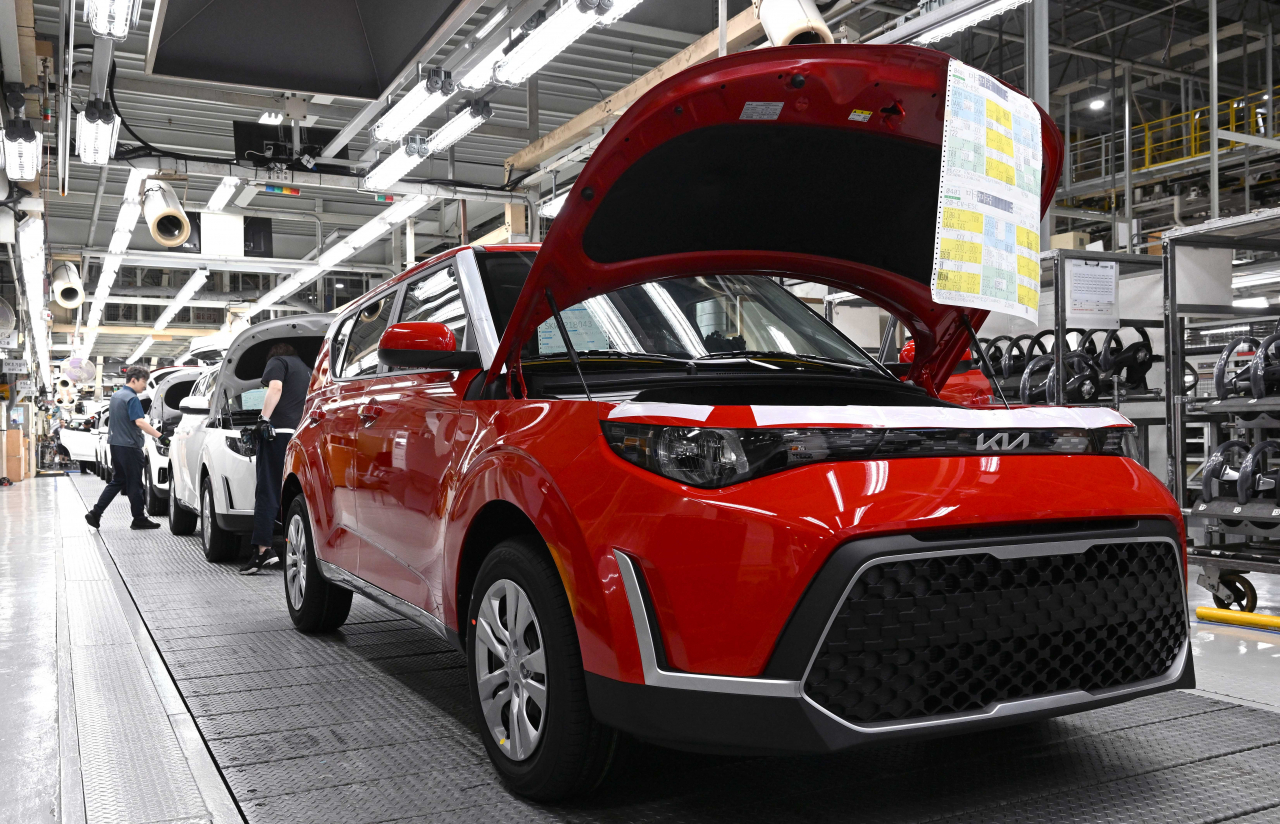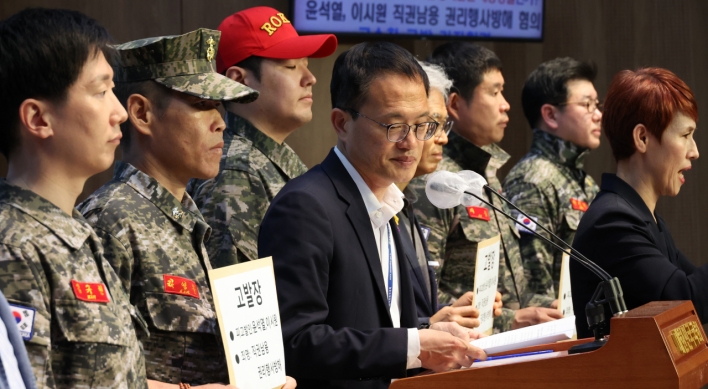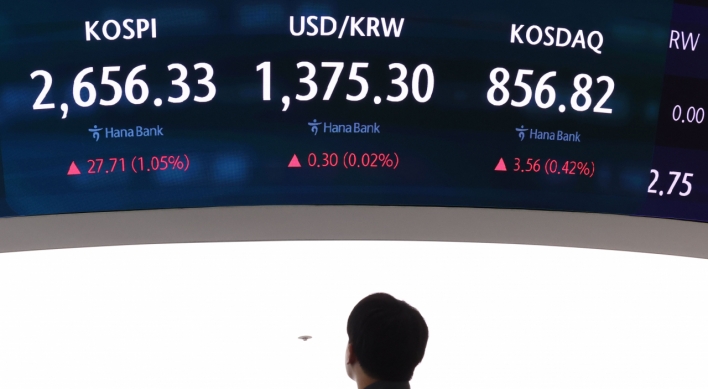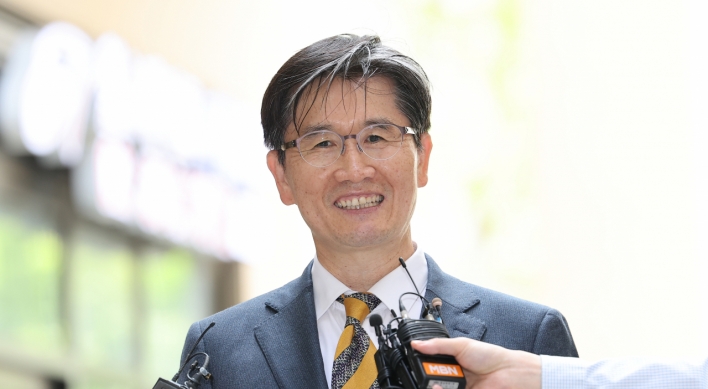[From the Scene] Kia's Gwangju plant ups automation
By Kan Hyeong-wooPublished : July 4, 2023 - 15:13

GWANGJU -- A line of pressing machines continuously stamped out automotive body panels inside Kia’s manufacturing plant in Gwangju on Thursday. The pressers never seemed to miss a beat as they kept stamping out the panels, offering a glimpse of the automatized operations at the South Korean carmaker’s major domestic production site.
A similar scene could be observed at the next stop, the welding shop. A large electronic display board hanging down from the ceiling showed how the automatic factory was doing in real time. The board read, “As of 12:58 p.m. Today’s goal: 741 units. Current figure: 255 units. Stoppage time: 3 minutes. Operating rate: 98 percent.”
Once the welding work was finished, the vehicles then were transferred to the paint shop. Only a few that obtained access in advance could enter the paint shop as the painting work was also fully automatized. The limited access was implemented to prevent workers from being exposed to potentially harmful substances of the paint.
Once vehicles arrived at the assembly shop after being painted, the factory workers would then support and oversee the assembling work. The same electronic display boards were found at the assembly shop with real-time numbers to show the day’s workload and progress.
According to Kia, the entire process from the beginning of manufacturing and the delivery to customers usually takes between two to three days.
Named Kia AutoLand Gwangju, the automotive manufacturing plant installed artificial intelligence fence systems throughout all of the shops. The AI fences would halt the automatized process if it senses a human worker entering certain areas of the operation site in order to prevent accidents.
Among the three Kia manufacturing plants in the country, the Gwangju site is the second-largest, covering over 1.1 million square meters. The factory has about 7,800 workers spread across four different buildings.
Kia AutoLand Gwangju manufactures the Seltos, Soul Booster, Soul Booster EV, Sportage, Bongo III Truck and Bongo III EV. The factory is capable of producing approximately 2,100 vehicles per day. As a part of Kia Autoland Gwangu, the Hanam factory near the Gwangju site manufactures large buses and military vehicles.
“During the time of Asia Motors, our annual production capacity was about 60,000. It has now turned into a vehicle manufacturing plant with an annual production capacity of 500,000,” said Jeon In-hwan, head of the production coordination group at Kia Gwangju AutoLand.
Kia, formerly named Asia Motors, produced little less than 60,000 vehicles at the Gwangju plant in 1998. The plant’s annual capacity increased by about 800 percent in 16 years as Kia manufactured a record-high of over 530,000 cars at the Gwangju site in 2014.
Kia originally began as Asia Motors in 1965. Asia Motors was later acquired by the Kia Group in 1976. Eventually, Hyundai Motor Group took over Kia in 1998 to form the country’s top auto conglomerate. Hyundai Motor and Kia grew together to become the third-largest carmaker in the world, selling a combined 6.84 million vehicles worldwide in 2022 behind only Toyota and Volkswagen Group.
“We will not settle for our current performances. We will work to achieve higher goals,” said Jeon.









![[Weekender] How DDP emerged as an icon of Seoul](http://res.heraldm.com/phpwas/restmb_idxmake.php?idx=644&simg=/content/image/2024/04/25/20240425050915_0.jpg&u=)

![[Today’s K-pop] NewJeans' single teasers release amid intrigue](http://res.heraldm.com/phpwas/restmb_idxmake.php?idx=644&simg=/content/image/2024/04/26/20240426050575_0.jpg&u=)






![[Herald Interview] Mistakes turn into blessings in street performance, director says](http://res.heraldm.com/phpwas/restmb_idxmake.php?idx=652&simg=/content/image/2024/04/28/20240428050150_0.jpg&u=)
